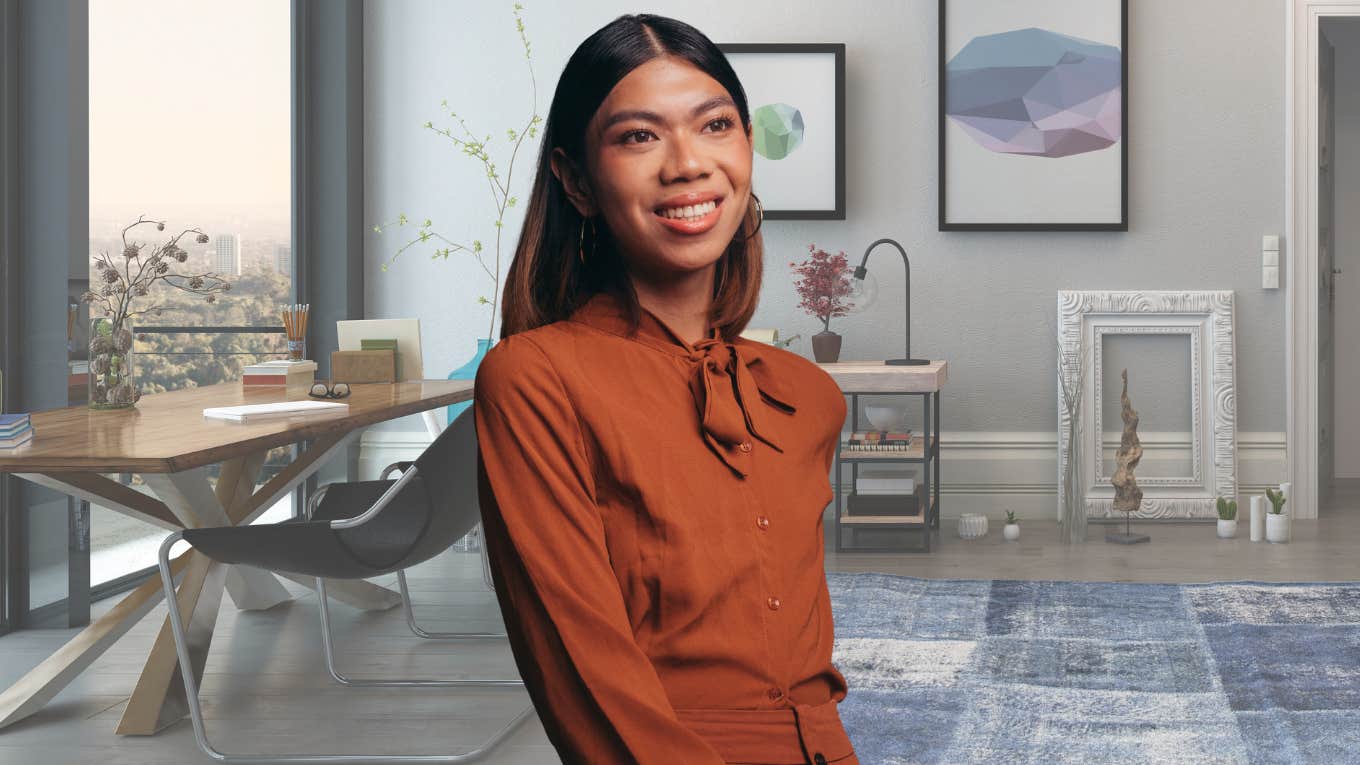Employee Is Told The Clothes She Wears To Work Aren't 'Business Casual' Despite Claiming She's One Of The Better Dressed People
Who makes the rules about what’s considered business casual?
 Corelens, TMGZ2021 / CanvaPro
Corelens, TMGZ2021 / CanvaPro If you’re new to the corporate world or constantly struggle to pick out your outfit before work, you probably understand just how difficult it can be to conceptualize “business casual” attire. Is it a collared shirt or a t-shirt? Can you wear dark jeans or only slacks?
One woman on TikTok shared a recent experience that made her rethink whether she’s been attempting to dress “business casual” all wrong. “My work bestie told me yesterday that I have not been wearing business casual," Audrey George revealed in her video. "This is shocking to me."
Despite claiming to be one of the ‘better dressed’ people in the office, George was told she was not meeting ‘business casual’ standards.
When her co-worker approached, telling her she wasn’t dressed in “business casual” attire, George admitted to being surprised. “I thought I was wearing business casual the entire time I’ve worked at this place,” she said. “I’m going to show you my outfit … I think I’m about to be humbled.”
George revealed the outfit in question — green pants, a loose long-sleeve, and high-heeled boots.
Despite her concern over the outfit, commenters support her outfit choice. "You are business casual for your style if that makes sense,” one viewer wrote. "That's not corporate business casual, but it's lovely, and likely entirely appropriate for where you work," another added.
At the end of her TikTok, George provided an update after a work event, admitting there “was actually nothing wrong” with her outfit. “I just went to that [work event], and I was on the better-dressed end of that spectrum. So, I’m not worried about it anymore,” she said.
Business casual attire can be confusing, as there is no actual definition.
Aligning with “business casual” criteria is more about avoiding the “don’ts” than adhering to the “dos,” according to business reporter Anne Sraders. “The main problem with defining how to dress business casual is the lack of an across-the-board definition,” she admitted. “[It’s] typically defined as no jeans, no shorts, no short dresses or skirts for women.”
In a follow-up video, George emphasized this point, showcasing another debatably business casual outfit that she was wearing to "give a talk at a Girl Scout trip meeting about expressing yourself and using your voice."
"Business casual is not one size fits all," she asserted. "You're allowed to dress your age, express yourself with color, and have fun with it."
George's outfits are great examples of balancing authenticity with professionalism, something that is becoming increasingly acceptable and popular.
The truth is that ‘business casual’ attire is ever-evolving, and Gen Zers are transforming it to ensure comfort and self-expression in the workplace.
Many online believe that Gen Z is radically transforming the workplace to push the traditional boundaries of “corporate lingo,” dress standards, and healthy relationships with work.
Workplace strategist Wasantha Warnasuriya admitted that this "significant shift” in the landscape of business attire can be largely attributed to the younger generation’s passion for enacting change. Gen Zers and Millennials have introduced a more “relaxed and versatile approach” to traditional workplace attire, "redefining the once-rigid boundaries of business dress codes.”
Especially amidst the rise of tech-centered roles in innovative industries, younger generations are crafting a work environment that promotes “creativity and innovation” over conformity. Restructuring the boundaries for workplace fashion is essential to fostering this evolving workplace atmosphere.
So, while George might have felt slight discomfort for being “called out” for her understanding of “business casual” attire — the truth is that the corporate industry is changing to allow more flexible standards. Alongside evolving workplace fashion, new standards about time off, advocacy for appropriate pay, and demand for workplace flexibility are sure to follow.
Zayda Slabbekoorn is a news and entertainment writer at YourTango focusing on pop culture analysis and human interest stories.

